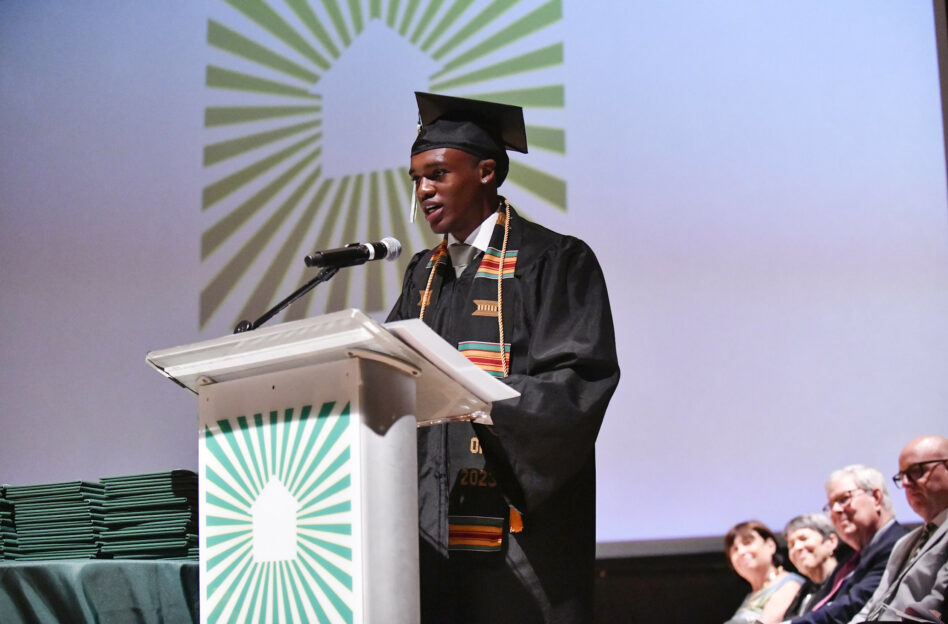Our Commitment to Anti-Racism
and Equity
The Mary McDowell Friends School community is committed to providing students, families, faculty, and staff with a learning and working environment that addresses racism and inequity with integrity and action. We welcome diversity in many ways, including race, color, culture, age, sex, socioeconomic status, gender, sexual orientation, gender expression and identity, family composition, ethnicity, nationality, religious expression, and disability. We commit to building an appreciation and understanding of each individual as well as of our community as a whole. We celebrate the strength of our diversity.
We commit to making anti-racism and equity central to our mission of cultivating “a diverse and anti-racist community in which all students can reach their full potential.” We believe that Black lives matter, and that we have a responsibility to challenge not only our national legacy of systemic racism but also the structural inequities within our own community. We will amplify our BIPOC (Black, Indigenous, and People of Color) voices, and look to Quaker tradition to guide us in creating a safe, inclusive, and equitable school. It is essential that we embrace our Quaker values and testimonies as we work toward anti-racism and equity in our community and beyond.

ACTION PLAN
As we dedicate ourselves to achieving the goal of being an anti-racist school, we pledge to examine our own culture and history, and not let the past get in the way of the future. We will do the work of addressing racism and inequity with bravery and authenticity.
- Education is the key to developing an anti-racist community. MMFS is committed to providing all community stakeholders (families, students, faculty and staff, trustees) with differentiated and ongoing anti-racism and equity training and programming.
- We will teach and learn cultural competency, and we expect all members of the community to become fluent in the language of diversity, equity, and inclusion.
- We pledge to use an equity lens in the development of all programs, materials, field trips, travel, and professional development workshops, with a particular emphasis on designing anti-racist curricula, assignments, and grading/assessment policies.
- We will facilitate increased student dialogue about racism, bias, identity, and inequity in morning meetings, read alouds, advisories, affinity groups, clubs, and student-led initiatives.
- We will work to create equitable space in our classrooms to amplify the voices of our BIPOC students.
- We will create the “Good Trouble” Committee (named in tribute to the late Rep. John Lewis) to create a practice of advocacy, activism, outreach, and education. The committee will be made up of students, staff and faculty, administration, families, alumni, and board members.
- We will create a rubric for admissions decisions and for determining financial aid, taking into account race, racism, and privilege.
- We will continue our policy of actively recruiting and retaining people of color for all positions, and widen the scope of our community outreach to ensure we are attracting and admitting more BIPOC students. To hold ourselves accountable, we will track and publish statistics about the diversity of the community.
- We will structure committees empowered to make decisions about MMFS policies and practices to include diverse representation and opportunities for leadership.
- We will develop mechanisms and channels for non-hierarchical feedback across and within stakeholder groups, including providing training on giving and receiving constructive feedback.
- We will develop an internship program specifically designed to create a pipeline of teachers and staff members of color to join our staff. We will also encourage professional growth for internal advancement.
- To provide visibility and celebration of shared social identities, our faculty mentorship program will now intentionally pair mentors and mentees who have expressed a desire to work with a colleague who shares one or more social identities. We will expand this program to create alumni mentors for students.
- We will institute an equitable evaluation system for every member of the staff.
- Environmental justice is racial justice. We will reflect on how privilege affects our stewardship of resources, and we will take incremental action to become a carbon-neutral, environmentally sustainable institution.